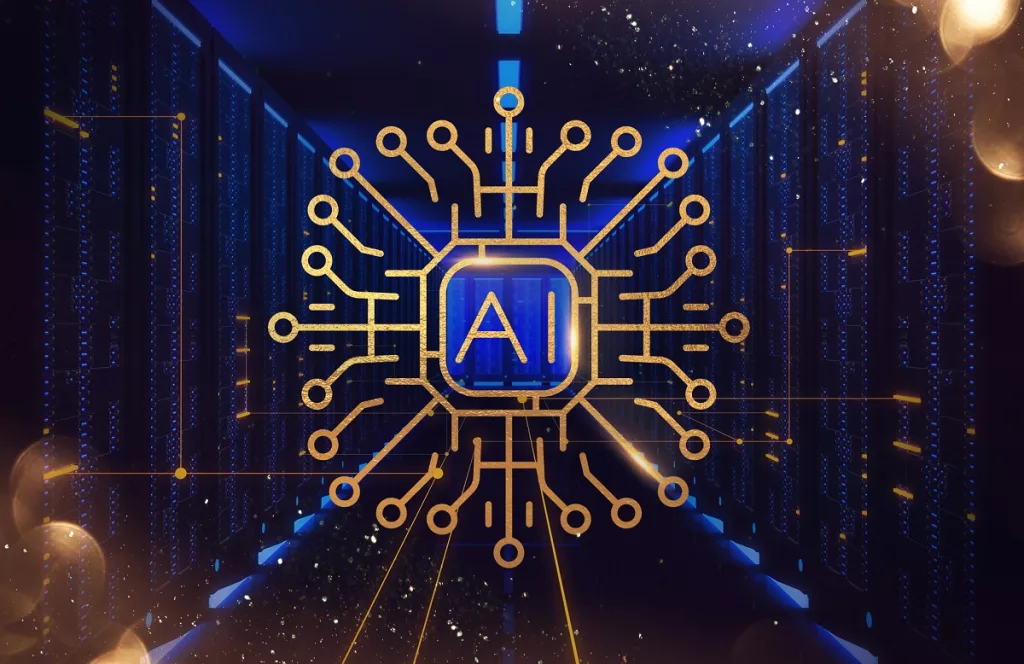Can Arts Students Do Artificial Intelligence?

Arts and Artificial Intelligence are two seemingly different fields. However, with the rise of technology, the boundaries between these fields are blurring. With the increasing use of AI in various sectors, including the arts, it is natural for arts students to wonder if they can pursue AI.
The answer is yes. Arts students can pursue AI. AI is a multidisciplinary field that requires a combination of skills from different fields, including arts. In fact, arts students can bring a unique perspective to AI, which can be useful in developing AI systems that are more human-centered.
However, pursuing AI as an arts student may require some additional effort. It may involve taking courses in computer science, data science, or related fields. Pursuing a degree in AI may also require some additional coursework. But with the right mindset and preparation, arts students can successfully pursue AI and build a career in this field.
Key Takeaways
- Arts students can pursue AI and bring a unique perspective to the field.
- Pursuing AI as an arts student may require additional coursework in computer science or related fields.
- With the right mindset and preparation, arts students can successfully build a career in AI.
Arts and Artificial Intelligence
The Intersection of Arts and AI
The intersection of arts and artificial intelligence has been a topic of discussion for quite some time. AI has opened up new possibilities for artists to create works that were previously impossible. AI-generated art is a new medium that is immersive and participatory, providing a unique art experience. On the other hand, some argue that AI could mean the end of human creativity in the arts. However, many artists believe that AI is a tool that can be used to enhance their creativity and bring new perspectives to their work.
AI can be used to create art in various forms, such as music, visual art, and literature. For instance, AI can be used to generate music by analyzing the patterns in existing music and creating new compositions based on those patterns. Similarly, AI can be used to create visual art by generating images based on specific input parameters. AI can also be used to generate literature by analyzing existing texts and creating new works based on those texts.
Case Studies of Artists Using AI
Several artists have started to use AI to create their works. One such artist is Mario Klingemann, who is known for his AI-generated art. Klingemann uses AI to create unique and abstract images that are impossible to create manually. Another artist who uses AI is Sougwen Chung, who creates interactive installations that combine human and machine intelligence. Chung’s works explore the relationship between humans and machines and how they can work together to create something new.
AI is also being used in the film industry to create realistic visual effects. For instance, the movie “Blade Runner 2049” used AI to create the holographic character Joi. The character was created by merging the performances of two actresses and then using AI to create a seamless blend of the two performances.
In conclusion, AI is a tool that can be used to enhance the creativity of artists and bring new perspectives to their work. The intersection of arts and AI is an exciting area that is still in its early stages, and there are many possibilities for artists to explore.
Can Arts Students Pursue AI
Art students who are interested in artificial intelligence (AI) might wonder if they have the necessary skills to pursue a career in this field. The answer is yes, arts students can pursue AI, but they will need to develop certain skills and knowledge to make the transition.
Required Skills
To excel in AI, arts students will need to develop skills in math, statistics, and computer science. They should also have a strong understanding of algorithms, data structures, and programming languages such as Python. It is important to have a solid foundation in these areas to be able to work with AI technologies effectively.
In addition to technical skills, arts students should also have strong critical thinking and problem-solving skills. AI requires individuals to analyze large amounts of data and identify patterns and insights. They should also be able to communicate their findings to others in a clear and concise manner.
Transitioning from Arts to AI
Arts students who are interested in pursuing AI can take several steps to make the transition. One option is to take courses in computer science and mathematics to gain the necessary technical skills. Many universities offer introductory courses in these subjects, and online courses are also available.
Another option is to participate in AI-related projects or internships to gain hands-on experience. This can help students to develop a portfolio of work that showcases their skills and knowledge in AI.
Arts students should also consider joining AI-related clubs or organizations to network with professionals in the field. This can help them to learn about job opportunities and gain insights into the industry.
Overall, arts students can pursue AI if they are willing to develop the necessary skills and knowledge. With the right training and experience, they can have a successful career in this field.
Courses and Degrees
AI Courses for Arts Students
While it may seem like a daunting task for arts students to get into the field of Artificial Intelligence, there are many courses available that can help them acquire the necessary skills. These courses are designed to teach students the fundamentals of AI and machine learning, including programming languages such as Python, data analysis, and deep learning techniques.
Some of the popular AI courses for arts students include:
- Introduction to Artificial Intelligence – This course provides a broad overview of the field of AI, including its history, applications, and techniques. Students will learn about topics such as search algorithms, logic, and machine learning.
- Machine Learning – This course covers the basic principles of machine learning, including supervised and unsupervised learning, decision trees, and neural networks. Students will also learn how to use popular machine learning libraries such as TensorFlow and Keras.
- Data Science and Analytics – This course teaches students how to analyze and interpret data using statistical methods and machine learning techniques. Students will learn how to use tools such as R and Python to manipulate and visualize data.
Universities Offering AI for Arts Students
Many universities now offer AI programs specifically designed for arts students. These programs provide a unique combination of AI and arts courses, allowing students to explore the intersection of these two fields.
Some of the universities offering AI programs for arts students include:
- University of Pennsylvania – The University of Pennsylvania offers a concentration in Artificial Intelligence for computer and information science students. This program includes classes such as “deep learning for data science” and “natural language processing”.
- Harvard University – Harvard offers a course in Artificial Intelligence as part of its online data science program. This course covers topics such as machine learning, deep learning, and natural language processing.
- Purdue University – Purdue offers a Bachelor of Arts in Artificial Intelligence, which requires students to take 24 credit hours in philosophy and 15 credit hours in computer science. The program focuses on science- and technology-focused philosophy courses, along with required CS courses for AI majors.
Overall, arts students who are interested in pursuing a career in AI have a variety of options available to them. By taking advantage of these courses and programs, they can acquire the skills and knowledge necessary to succeed in this exciting field.
Career Opportunities
Art students who are interested in artificial intelligence (AI) can explore various career opportunities in the field. While the majority of AI professionals have a background in computer science, there are several AI jobs that arts graduates can pursue.
AI Jobs for Arts Graduates
Some of the AI jobs that are suitable for arts graduates include:
| Job Title | Description |
|---|---|
| AI Designer | AI designers use their creativity and design skills to develop AI systems that are user-friendly and visually appealing. They work closely with AI engineers and data scientists to create AI models that can be integrated into various applications. |
| UX Designer | UX designers focus on creating user experiences that are intuitive and engaging. They work with AI designers and developers to ensure that AI systems are designed with the user in mind. |
| Content Strategist | Content strategists use their writing and communication skills to develop content that is optimized for AI systems. They work with AI developers to ensure that content is structured in a way that is easy for AI systems to understand and process. |
| Data Analyst | Data analysts use their analytical skills to interpret data and identify patterns and trends. They work with AI engineers and data scientists to develop AI models that are based on accurate and relevant data. |
Future Prospects
The field of AI is rapidly growing, and there is a high demand for skilled professionals who can develop and implement AI systems. According to a report by the World Economic Forum, AI is expected to create millions of new jobs in the coming years, and many of these jobs will be in creative fields such as art and design.
As AI becomes more prevalent in various industries, there will be a growing need for professionals who can bridge the gap between technology and creativity. Arts graduates who have an interest in AI can take advantage of the many career opportunities that are available in this exciting and dynamic field.
Frequently Asked Questions
What degrees are recommended for studying artificial intelligence?
It is recommended to have a degree in computer science, mathematics, or a related field for studying artificial intelligence. However, arts students can also pursue AI if they have a strong interest and passion for the subject.
What are the prerequisites for studying artificial intelligence?
To study artificial intelligence, students should have a strong foundation in mathematics, including calculus, linear algebra, and probability theory. Additionally, they should have programming experience in languages such as Python, Java, or C++.
What are the benefits of studying artificial intelligence as an arts student?
Studying AI as an arts student can offer a unique perspective on the field. Arts students can bring creativity and critical thinking skills to the development of AI, which can lead to more innovative and ethical solutions. Additionally, AI can be applied in various fields such as music, art, and literature, providing opportunities for arts students to explore new areas of interest.
Are there any limitations for arts students studying artificial intelligence?
While arts students can pursue AI, they may face some challenges due to the technical nature of the subject. They may need to put in extra effort to develop their programming and math skills. Additionally, some AI job positions may require specific technical degrees or certifications.
What are the job prospects for arts students in the field of artificial intelligence?
The field of AI is rapidly growing, and there is a high demand for professionals with AI skills. Arts students with AI knowledge can find job opportunities in various fields such as advertising, media, and entertainment. They can work as AI developers, data analysts, or UX designers.
What are the top universities offering courses in artificial intelligence?
Several top universities offer courses in artificial intelligence, including Stanford University, Massachusetts Institute of Technology (MIT), Carnegie Mellon University, and University of California, Berkeley. These universities offer both undergraduate and graduate programs in AI, providing students with a comprehensive education in the field.







